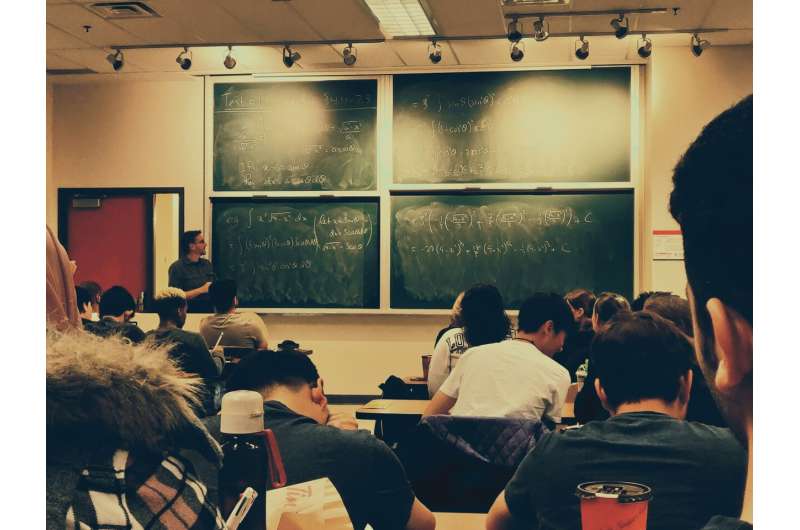'Time poverty' can keep college students from graduating—especially if they have jobs or children to care for

Many college students don't have enough time for their studies. This "," as we call it, is often due to inadequate child care access or the need to work to pay for college and living expenses.
In an effort to understand how much time poverty affects student outcomes, we surveyed more than 41,000 U.S. college students. We found that the more time poverty, the greater the chances of a student . This is especially true for Black and Hispanic students and for women, who have compared with their peers, largely due to time spent on their jobs and caring for children.
Our research describes how differences in time available for college are in higher education, such as insufficient financial aid for students who have children or who have to work to pay the bills.
Why it matters
Time poverty explains major differences in student outcomes. In one study, students who dropped out of college had on average than those who did not drop out. And students who earned over 12 credits in a term had on average 18 more hours per week available for college than students who earned only six credits or less. Thus, student outcomes are highly correlated with available time for academics.
Often, there are between students from different racial or ethnic groups or by gender. However, those gaps shrink significantly—or disappear altogether—when we compare students with similar time available for college. This shows just how important time is as a resource for finishing a college degree.
Time poverty also leads to overwork, which can cause burnout. For example, Black women had the . Compared with the group with the most time—Asian and Pacific Islander men—Black women had on average 24 fewer hours per week to devote to their studies. However, both groups spent the same amount of time on college.
How is this possible?
Black, Hispanic and women students —time left over after paid work, housework and child care—on college than their peers. The average total time Black women spent on college as well as paid and unpaid work was 75 hours per week, or equivalent to more than two full-time jobs.
Our findings show that this holds true for all students. On average, the more time-poor they are, the more free time they sacrifice for their studies.
This sacrifice comes at a cost: Students must give up time spent on sleep, meals, health care, leisure and exercise to make time for college. This is particularly worrisome because overwork has been linked to and .
In prior research, my colleagues and I have also found that ——a�Ի� have less time available for college than their peers. This explains differences in academic outcomes. Time poverty affects students from many different groups, yet existing college policies, practices and structures rarely take it into account.
What's next?
Even though , the availability of on-campus child care has been , and child care costs are in financial aid. Student-parents also have to work extra hours to pay for their children's living expenses, which are .
Even for students without children, financial aid rarely covers actual expenses. Federal financial need calculations often , especially for students with lower socioeconomic status or more family responsibilities. Current federal financial aid meets the needs of only . Accordingly, most U.S. students have to work to pay for college, taking away time that would likely be better spent studying.
Providing students with enough financial aid to enroll in college, but not enough to complete college, is counterproductive. Providing students with enough time—a�Ի� thus money—for college is therefore not only a sound investment but also critical to honoring the values of fairness and opportunity for all.
Provided by The Conversation
This article is republished from under a Creative Commons license. Read the .![]()



















